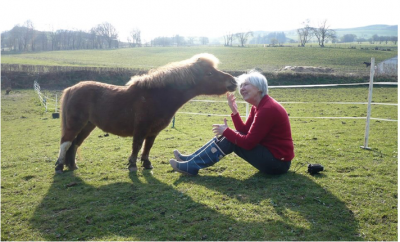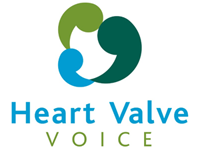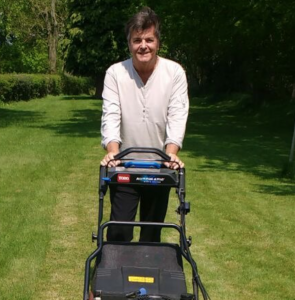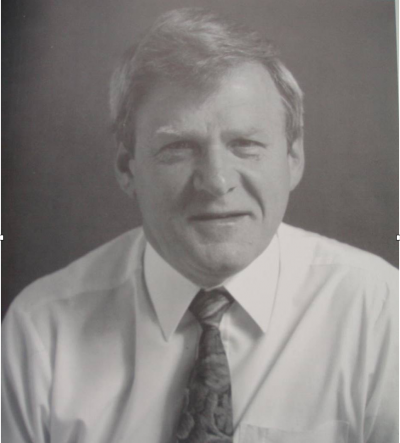
Patricia Khan: My Repair Story

In 2006, Patricia had a brief problem with heart palpitations, which acted as a red flag and prompted her to go and see her GP for a stethoscope check. 10 years on, she explains her story and why a “stitch in time” really did apply to her valve disease!
I was 55 when an incident of alarming palpitations revealed the reason I felt less than 100 per cent. My heart had been compensating for a defective mitral valve and was getting tired of the extra work. This particular valve was ‘leaky’ and is known as mitral valve regurgitation. I didn’t know I had this, and the GP explained that it can be very difficult to detect. I’d grown accustomed to my annoyingly random heart-beat, and as for feeling less energetic, wishing I could doze off during the day and being a bit breathless during aerobics, I blamed the stresses of everyday life. My health and fitness have always been good overall, but those one-off palpitations were a warning sign. After an ECG at my GP’s surgery I was referred to the specialist Valve Clinic at the North West Heart Centre (Wythenshawe Hospital). There, my condition was fully explained and for the next seven years my valve disease was monitored.
I was told to watch out for the time when everyday tasks became greater challenges. “Tell us as soon as it happens”, my specialist nurse told me. This would be the optimum time for treatment and give me the prospect of a longer, more zestful life. In the expert care of the cardiologists at North West Heart Centre I had every reason to be positive, and to communicate my optimism to the people who love and need me. My husband, a triple-double bypass patient and a diabetic, our two sons, and my mother who lives with us and has dementia.
Eventually, when my brisk walk home became more of a hill climb, and the top flight of stairs to bed made me breathless it was clearly time to go on the waiting list. Sooner than expected, the hospital called: I could have my operation the next day! And so on my sixty-second birthday, our National Health Service and Dr James Barnard of the North West Heart Centre gave me the special gift of mitral valve repair.
I walked down to theatre in the afternoon and opened my eyes four hours later. I don’t know how many stitches were made with the special Goretex thread that strengthened my leaky valve, but they were made in time, at the right time and in the right place. I don’t remember feeling pain, discomfort or anxiety, but I had a real thirst! Superb nursing eased me through the first hours of recovery in a state-of-the-art ward equipped with technology worthy of Star Trek’s USS Enterprise. After a comfortable night I was able to have an early morning wash and move back to a regular ward. Four days later I was discharged.
Once at home, even though specialist support was just a phone call away, I missed the reassuring presence of the fantastic nurses and this phase of recovery was difficult. For two weeks it was hard to achieve any real comfort or adequate sleep. Raising myself unaided or moving off my back were particularly difficult tasks. With perseverance, I gradually extended the length of my daily walks and began to seek out therapies that would make me feel better physically and psychologically. I was eager to run before I could walk during the prescribed post-surgery exercise regime and I saw this as an opportunity to be not only myself, but a better, fitter, version. Massages encouraged a natural rhythm of relaxation and sleep, and expert physiotherapy helped to restore my posture.
If my experience resonates with you, regardless of your age, gender, or level of fitness, I’d like to impart three words that could potentially save your life, and almost certainly improve it: Awareness, Action and Attitude.
Be aware of symptoms that slow you down, worry or impair you; breathlessness, irregular heartbeat or palpitations, light-headedness, dizziness, lethargy, fatigue. Don’t assume that you are “feeling your age” – whatever that may be. Don’t attribute symptoms to the stresses of family life or work, or any other medical condition. Check! Take action and be assertive when you do. See your GP and insist on a stethoscope check. Make your attitude optimistic and positive. Before surgery, I looked at my daily agenda and wondered: what can I take out? Now, at 64, I say: what can I add in!
Despite my positive experience, I can’t help question the need to be monitored for 7 years. Had my valve disease been treated sooner, I would have had the benefits of a fully-functioning heart for longer and never experienced the more dramatic symptoms of breathlessness and fatigue. I fully support the questions Heart Valve Voice are asking about this.
Latest Patient Stories
WHF urges countries to develop cardiovascular action plans and launches global petition
Geneva, 27 September 2024: The World Heart Federation (WHF) is launching a global petition urging all countries to have a ‘National Cardiovascular Action Plan’ to tackle [...]
Wil’s Blog – Looking Back at International Heart Valve Disease Awareness Week 2024
As I reflect on last week’s International Heart Valve Disease Awareness Week, I am both humbled and inspired by what we have achieved together. Our [...]
Neil Driver’s Heart Valve Disease Story
In 2019, the father of two and grandfather of four, Neil Driver, was diagnosed with aortic stenosis after visiting his GP with swollen ankles. Five [...]
Patient Stories
Categories









